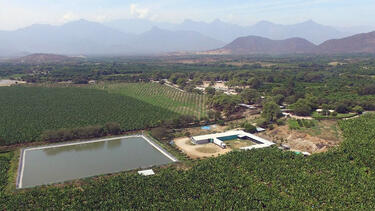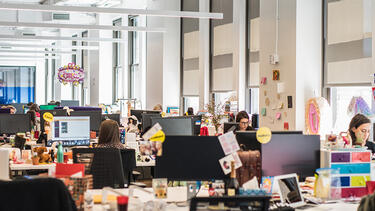All Insights Articles
Ken Frazier: The Strongest Man in the World
Yale’s Jeffrey Sonnenfeld calls on business leaders to meet the test of character and civic leadership by following through on their stated convictions.
Can We Adapt to Climate Change?
Climate change has the potential to reshape the priorities facing businesses, governments, and societies. Experts look at the key challenges around the world.

What are the Returns from Women Investing in Women?
Patricia Lizarraga of Hypatia Capital Group explains how the firm succeeds by investing in women.
What’s at Stake in the Healthcare Debate?
Yale Insights talked to Howard Forman, a Yale physician and economist, about the consequences of Congress passing a repeal of the Affordable Care Act—and what might happen if nothing passes.
How Do You Spot a Financial Bubble?
Are we in a financial bubble? Vikram Mansharamani YC ’96 offers a framework for spotting a bubble before it bursts.

Can a Farming Startup Help End Extreme Poverty?
Smallholder farms in developing countries haven’t benefited from the tech revolution. Can a startup offer a private-sector solution to extreme poverty?

What Are the Opportunities for ASEAN?
Taken together, the countries of Southeast Asia would be the world’s fifth largest economy. Curtis Chin ’90 explores the business and development opportunities there.

The CEOs Who Didn’t Deserve the Boot
In a Wall Street Journal commentary, Prof. Jeffrey A. Sonnenfeld writes that short-term thinking has led a number of companies to oust valuable leaders.
How Do You Build a Design Team?
When designer Cap Watkins arrived at the digital media powerhouse Buzzfeed in 2015, the company had a group of talented designers. What it didn’t have, Watkins told Yale Insights, was the structure to help them to work together and build their careers.

Is Big Data Bigger than Its Own Hype?
Big data alone will not solve a single problem but combined with smart questions and effective tools it could launch a new age of discovery.
